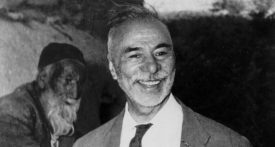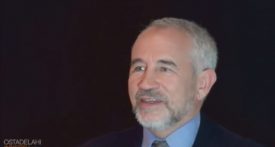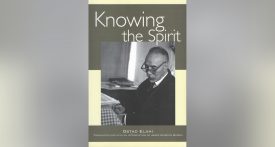301
Vote
Shortly before he was executed Socrates confided to one of his disciples that there was nothing to fear in death for the friends of knowledge. Indeed, if it is true that the body is merely a tomb for the soul, a form of unconsciousness that is lifted at death, what is there to fear for those who have dedicated their lives to seeking truth and justice?
Read more
1521
Vote
Ostad Elahi was born on September 11, 1895. On the occasion of his 116th birthday, it was only natural to pay him homage by reviewing some of the salient aspects of his life and works. In the preface to his translation of Knowing the Spirit (SUNY, 2006), Prof. James Morris draws from various sources, including autobiographical conversations and remarks by Ostad himself. This lively portrait of an outstanding 20th century spiritual figure manages to uncover the inner connections between the rich and varied experiences of a lifetime and the central notions of a philosophy. The following excerpt is published with the kind authorization of the author and SUNY Press.
Nūr ‘Alī Elāhī—or Ostad Elahi (“Master” Elahi), the honorific by which he is most widely known today—was born on September 11, 1895 in Jeyhunabad, a village in western Iran(1). The outward course of his life, as he described it in autobiographical conversations and remarks during his later years,(2) falls into three distinct periods: his childhood and youth, entirely devoted to traditional forms of ascetic and religious training; his active public career, for almost thirty years, as a prosecutor, magistrate, and high-ranking judge; and the period of his retirement, more openly devoted to spiritual teaching and writing (including the composition of Knowing the Spirit), when he became well known as a religious thinker, philosopher, and theologian, as well as a musician. Ostad Elahi’s own later description of those outward events, summarized in a few of his sayings quoted further on, helps bring out the inner connections between those different periods of his life and the broader lessons he was able to draw from those very different activities and experiences.
Read more
610
Vote
James Morris, Ph. D., is professor of Theology at Boston College. A specialist of islamic philosophy, he has written authoritative studies on Ibn ’Arabi and Mulla Sadra’s metaphysics. His most recent publications include a translation of Ostad Elahi’s Knowing the Spirit (SUNY, 2006), a book which he also prefaced and annotated.
In first part of this video interview published by ostadelahi-indepth.com, Prof. Morris discusses the reasons that led him to study this particular work. He emphasises its relevance and place in today’s modern world by explaining how Ostad Elahi invites his readers to relate the arguments developed in his study to their own personal spiritual experience.
Read more
476
Vote
In elaborating proofs for God’s existence, oriental and occidental philosophers alike did not necessarily intend to instil faith in those who were lacking it. When he wrote chapter 1 of Knowing the Spirit, which deals exclusively with this very question, Ostad Elahi was well aware that none of the arguments he presented could actually prove […]
Read more
109
Vote
Knowing the Spirit, Ostad Elahi, State University of New York Press, 2007 Ostad Elahi’s Knowing the Spirit, translated into English by James W. Morris, provides a concise and remarkably illuminating philosophic account of our unique place in the universe: of the creative expressions of the divine Spirit throughout nature and the process of the soul’s […]
Read more

 News
News Podcast
Podcast








Recent Comments